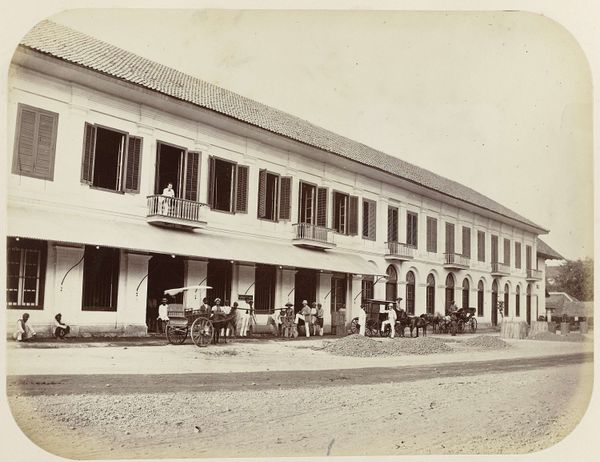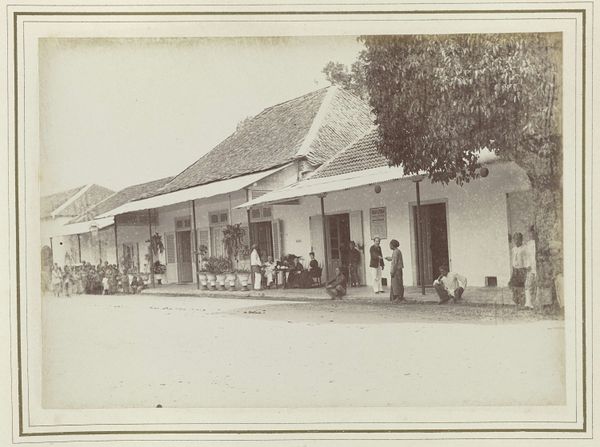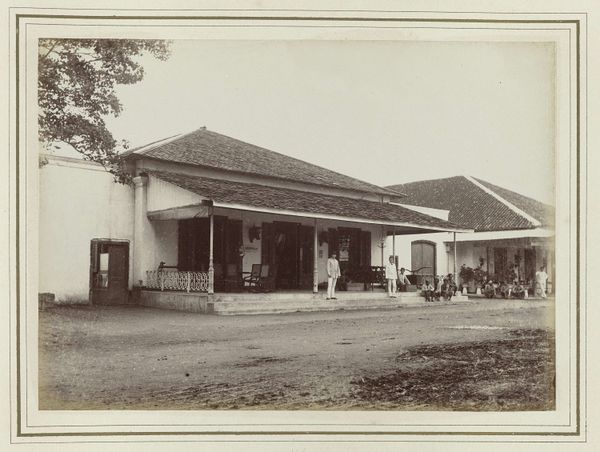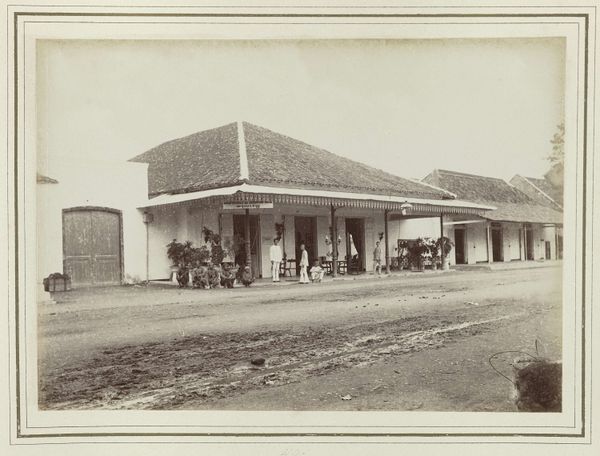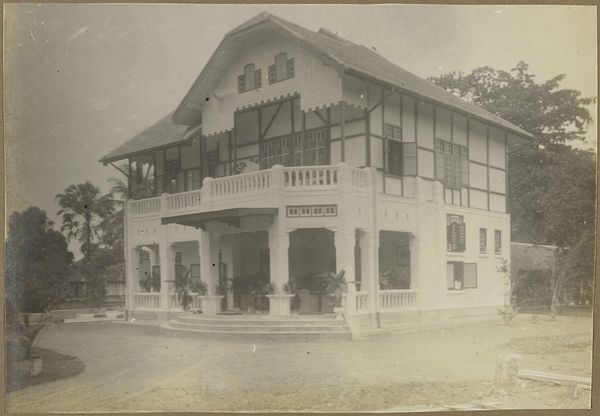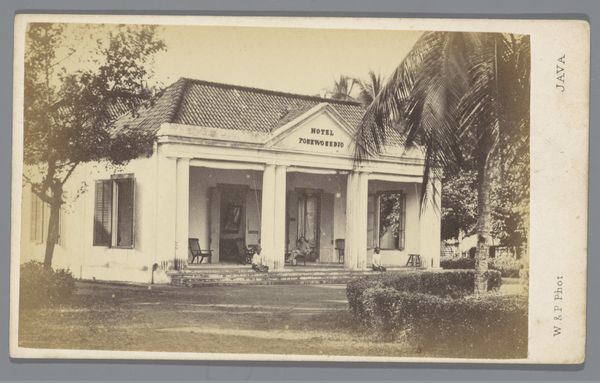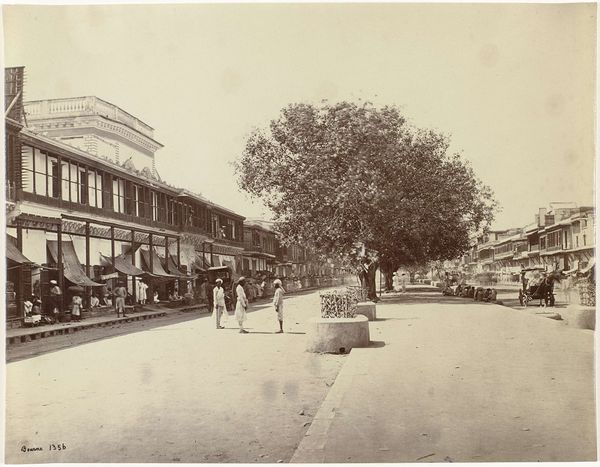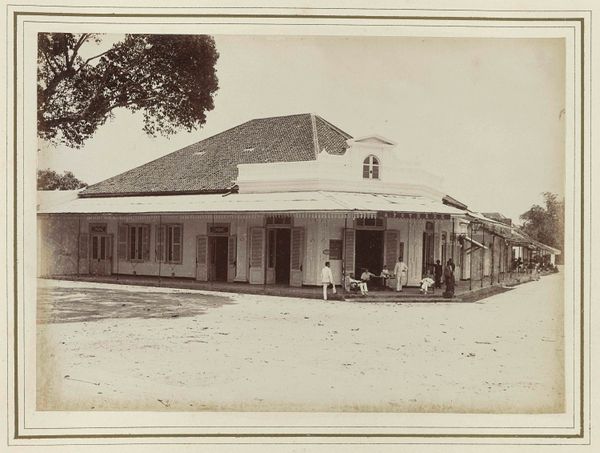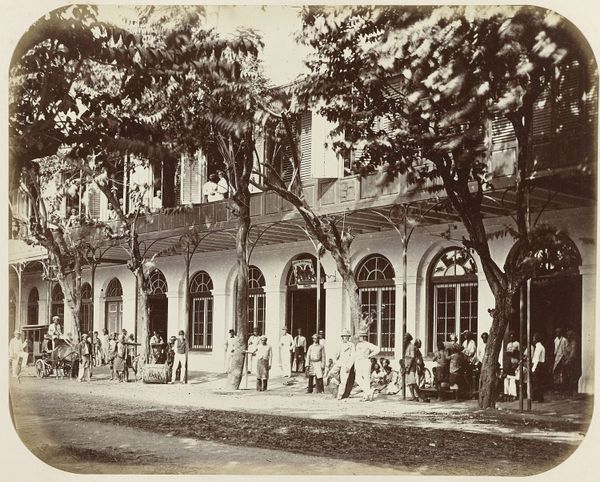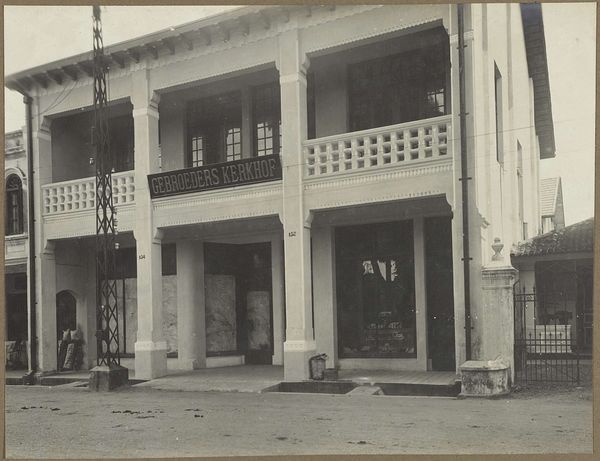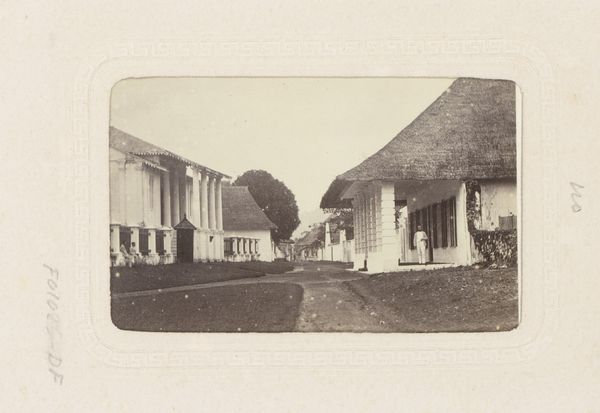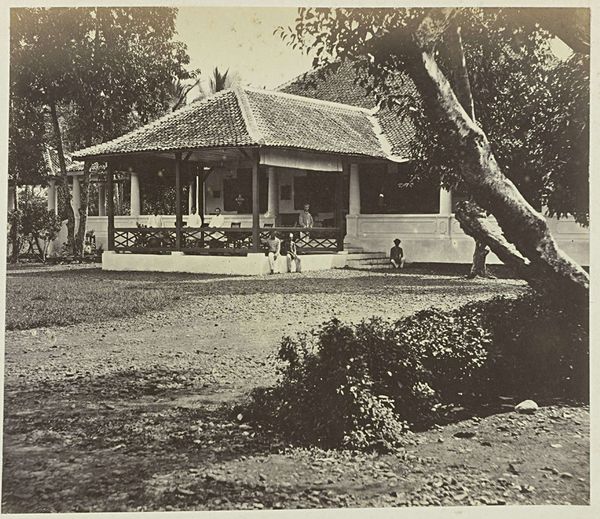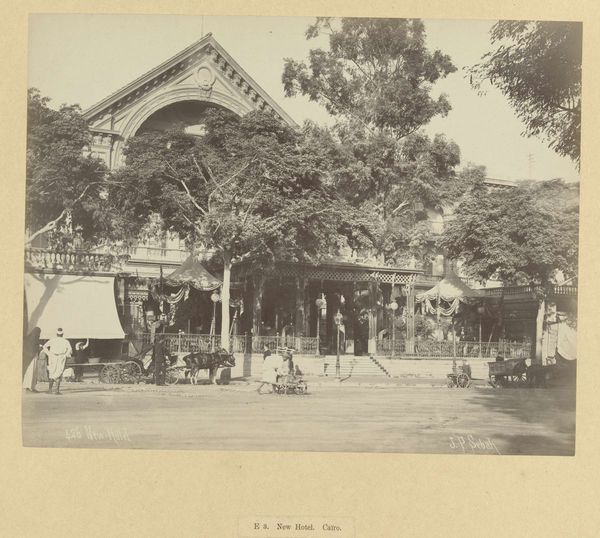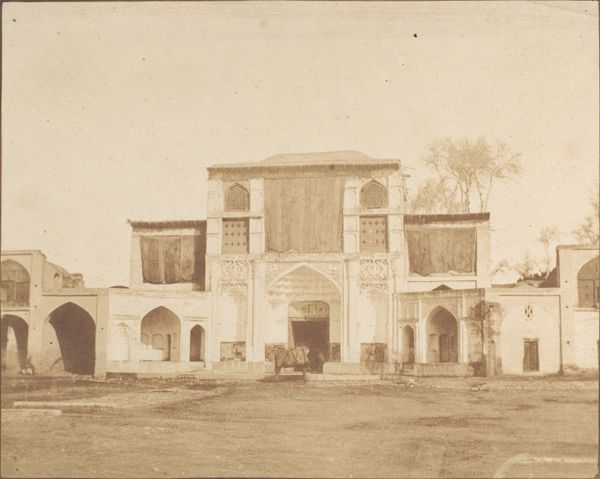
print, photography, albumen-print, architecture
# print
#
landscape
#
historic architecture
#
traditional architecture
#
photography
#
historical photography
#
cityscape
#
albumen-print
#
architecture
#
realism
Dimensions: height 208 mm, width 255 mm
Copyright: Rijks Museum: Open Domain
Editor: This albumen print, taken before 1872 by Woodbury & Page, captures the "Boekhandel Kolff & Co. te Batavia." It's a captivating cityscape, almost like stepping back in time. What strikes me is the contrast between the seemingly mundane scene of a bookstore and the clear indications of colonial life. What do you see in this piece? Curator: It's a fascinating photograph, isn't it? I see more than just a bookstore. Look closely at the figures, their dress, and their roles within the composition. How do these visual elements construct a narrative about Dutch colonialism in Batavia, now Jakarta? Editor: The presence of what appear to be European figures contrasted with the Indonesian locals is definitely striking, almost too perfectly placed. Is that typical of photography of this era? Curator: Precisely. Photography during this period often served a propagandistic function. Images were carefully composed to project an image of order and control. The positioning of the Europeans signifies power, while the presence and arrangement of the Indonesian people subtly reinforces a hierarchy. Editor: So, it’s not just a record of a bookstore, but a carefully constructed statement? The building almost becomes a backdrop for the power dynamics playing out in the foreground. Curator: Exactly. Consider the "Boekhandel" itself. What kind of knowledge was being disseminated, and who had access to it? Who was able to shape the narrative? How does this reflect broader patterns of colonial influence and cultural imposition? Editor: Wow, I never thought about it that way. The bookstore is not just a place of commerce, but a symbol of cultural influence and control. Curator: It allows us to critically examine the ways in which colonial powers exerted control through commerce, culture, and representation. Hopefully, thinking through such photographs like this gives you some additional perspective. Editor: Definitely! I see how understanding the historical and social context transforms a seemingly simple photograph into a complex statement about power and identity.
Comments
No comments
Be the first to comment and join the conversation on the ultimate creative platform.
